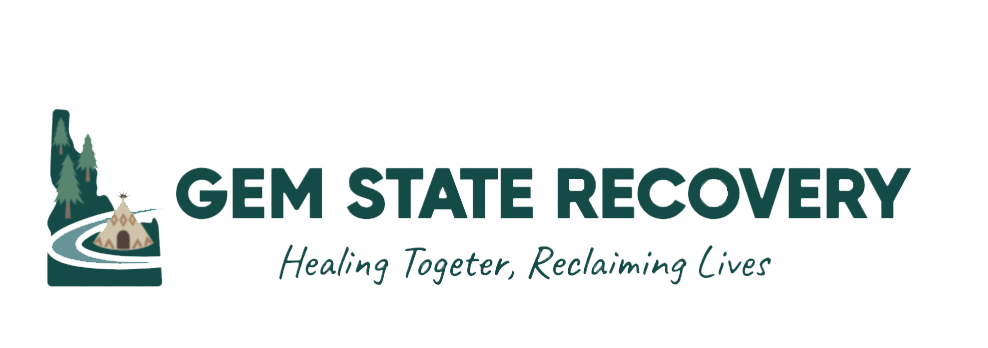
Boise Alcohol Rehab: A Journey Towards Recovery
At Gem State Recovery, we view the road to sobriety not just as a series of clinical steps but as a transformative journey that encompasses the heart, spirit, and mind. With a commitment to providing tailored and compassionate care, our approach to boise alcohol rehab focuses on addressing the complex web of factors contributing to substance use and mental health challenges.
Personalized Treatment Plans
Every individual’s journey with addiction and mental health is unique, which is why our team dedicates itself to crafting personalized treatment plans. Utilizing a blend of evidence-based therapies, we consider each person’s specific needs, circumstances, and goals. This individualized strategy ensures that our clients receive the most effective care possible on their path to recovery.
Evidence-Based Approaches
Understanding Our Core Therapies
We anchor our treatment modalities in proven practices, including Cognitive Behavioral Therapy (CBT), Dialectical Behavioral Therapy (DBT), and Eye Movement Desensitization and Reprocessing (EMDR), among others. These evidence-based approaches allow us to address the root causes of addiction, not just its symptoms, facilitating deeper healing and lasting sobriety.
Incorporating Holistic Elements
Recognizing the intricate link between body, mind, and spirit, our programs at boise alcohol rehab are designed to nurture all aspects of an individual’s well-being. From nutritional counseling and physical wellness activities to meditation and spiritual care, we strive to foster a holistic recovery.
The Role of Family in Recovery
Healing from alcohol addiction is a profound journey that affects not just the individual but their entire family. That’s why we place a significant emphasis on family involvement in our treatment programs. Through family support services and counseling, we help mend relationships and build a solid support network essential for long-term recovery.
Our Comfortable Facilities
Creating a safe, nurturing environment is key to fostering healing and growth. Our facilities are designed to offer a tranquil space where individuals can focus on their recovery free from the distractions and pressures of everyday life. These serene settings, combined with our professional and caring staff, make boise alcohol rehab a place where individuals can truly begin to heal.
Comprehensive Support Services
Recovery extends beyond the immediate treatment for alcohol addiction. Our comprehensive support services, which include relapse prevention, case management, and transitional living advice, are crafted to equip our clients with the tools and resources they need for success in the real world. Our goal is to ensure a seamless transition from treatment to everyday life, paving the way for sustained sobriety.
Transformative Impact: Success Stories
Nothing speaks more to the effectiveness of our approach at boise alcohol rehab than the stories of those who have walked this journey with us. From individuals reclaiming their lives from the grip of addiction to families restored and relationships rebuilt, the testimonials of our alumni are a testament to the transformative power of compassionate, comprehensive care.
Begin Your Journey With Us
Embarking on the path to recovery is one of the bravest steps you can take. At Gem State Recovery, we’re committed to walking alongside you every step of the way. With our holistic approach, dedicated team, and supportive community, we offer the resources, care, and guidance needed to navigate the complexities of recovery. If you or a loved one is struggling with alcohol addiction, we invite you to reach out and begin your journey toward healing today.

How does the personalized approach to treatment at Gem State Recovery differ from other rehab centers?
At Gem State Recovery, we recognize that the path to recovery is as individual as the person walking it. Unlike a one-size-fits-all method often seen in other centers, our personalized approach begins with an in-depth assessment of each client’s unique situation, preferences, and needs. This allows us to craft a treatment plan that not only addresses the physical aspect of addiction but also the emotional and psychological facets. Imagine a scenario where two individuals, despite having the same addiction, have entirely different experiences, backgrounds, and triggers. Our method considers these differences by integrating various therapies and support systems, ensuring a more rounded and effective recovery journey. This approach, backed by evidence-based practices, ensures our clients not only achieve sobriety but also regain a sense of purpose and fulfillment in their lives.
What makes evidence-based therapies more effective in treating addiction?
Evidence-based therapies, such as CBT, DBT, and EMDR, stand on a foundation of rigorous research and clinical trials, proving their effectiveness in treating addiction and associated mental health conditions. These therapies delve into the underlying issues contributing to addiction, enabling clients to understand their triggers, develop healthier coping mechanisms, and ultimately, forge a stronger resistance against the likelihood of relapse. Consider Cognitive Behavioral Therapy (CBT), which helps individuals reframe negative thought patterns that often lead to substance abuse. By equipping our clients with these proven strategies, we’re not just treating the addiction; we’re transforming the way they interact with the world around them, fostering lasting change.
Why is family involvement crucial in the recovery process?
The journey of recovery extends beyond the individual to encompass their entire support system, most notably, their family. Family involvement is critical because addiction often strains relationships, eroding trust and communication. By integrating family support services and counseling into our programs, we help heal these wounds, rebuild connections, and establish a robust support network. Encouraging families to participate in the recovery process not only enhances the individual’s resilience against relapse but also educates loved ones on the complexities of addiction, breaking down misperceptions and fostering a supportive home environment. Imagine a scenario where a person’s recovery is not just their own victory but a shared triumph among their loved ones, reinforcing the notion that they’re not alone on their path to sobriety.
How does comprehensive support after treatment contribute to long-term sobriety?
Recovery from alcohol addiction doesn’t end with the conclusion of a treatment program; it’s a lifelong commitment. That’s why comprehensive support services post-treatment are so vital. These services, including relapse prevention planning, case management, and transitional living advice, provide our clients with the tools and resources they need to navigate life outside the rehab center. By offering continued support, we help our clients adapt to their new sober lifestyle, manage challenges that arise, and maintain the progress they’ve made. Just as a building needs a solid foundation to stand, our clients require ongoing support to uphold their sobriety. Consider it as transitioning from having a constant helping hand to holding a safety net, ensuring that even if they stumble, they won’t fall back into old habits.
How do success stories from alumni inspire individuals currently struggling with addiction?
Hearing success stories from our alumni serves as a powerful beacon of hope for individuals currently embarking on their recovery journey. These testimonies provide tangible proof that overcoming addiction is possible, fostering a sense of optimism and motivation. Each story is a unique insight into the challenges and triumphs of recovery, offering relatable experiences that current clients can draw strength and encouragement from. Imagine being in a place of doubt and hearing someone’s story mirroring your own struggles yet leading to a triumphant recovery. It’s a reminder that they’re not alone, and that with perseverance, support, and the right tools, they too can reclaim their lives from addiction. Success stories are not just narratives; they are the embodiment of resilience and the transformative power of compassionate, comprehensive care.
Recovery Resources
- Substance Abuse and Mental Health Services Administration (SAMHSA) – SAMHSA provides a national helpline for individuals and families seeking help with substance abuse and mental health issues.
- National Institute on Drug Abuse (NIDA) – NIDA offers research-based information on drug abuse and addiction, as well as resources for treatment and prevention.
- Alcoholics Anonymous (AA) – AA is a fellowship of individuals who share their experience, strength, and hope to help others recover from alcoholism.
- National Alliance on Mental Illness (NAMI) – NAMI provides support, education, and advocacy for individuals and families affected by mental illness.
- Centers for Disease Control and Prevention (CDC) – Alcohol and Public Health – The CDC offers information on the public health impact of alcohol consumption and resources for prevention.




